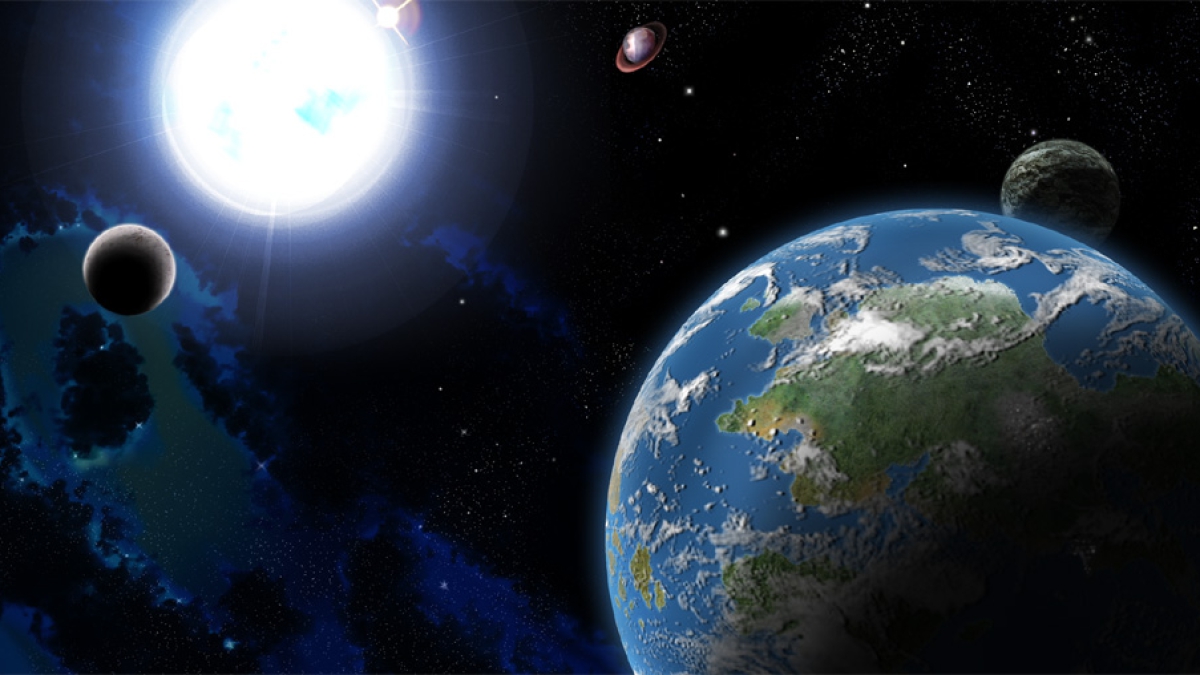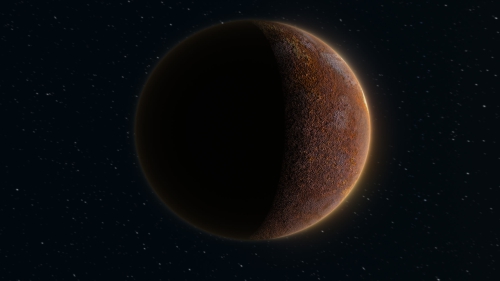God is not a Delusion

American Astronomer, Carl Sagan, describes our Earth as a "pale blue dot" in the vast emptiness of the universe. For an observer looking at Earth from outer space, from a point millions of miles away, it certainly would look like a small dot; especially when compared to a large number of other celestial bodies that make up the universe.
For us, human beings living on Earth, however, our planet is a vast expanse of land and water. We find its physical distances colossal. Even on the best of our technological crafts, we take several hours to cross the Atlantic or the Pacific Oceans. Today, these distances have been vastly reduced for us, not physically, but with the invention of the internet. The internet makes us feel as if we are all fish living in the same pond.
Today we can find a great magnitude of the contemporary world's antagonism to theism or belief in God on the internet.
Ever since we started exploring into the norms and cultures of our forefathers' lives, we have known that there were people who did not believe God exists - atheists - and also people who were unaware or unconvinced of the existence of such a being as God - agnostics. But historically, the majority of people did believe in the existence of God. Atheists and agnostics were the minority.
We know from history that non-belief existed in all cultures and countries - the stories of the non-believers have found their way into our history books ever since religious history started to be documented. Archaeological evidence shows that belief in an afterlife and also belief in a 'higher power' existed within human cultures even before history was documented. Where there were believers, it is only likely there would be non-believers too.
Although atheists have probably always existed, it was not until relatively recently that they rebranded their overt hostility to belief in God and religion. The new strain of atheism we find today, what The Wall Street Journal calls "militant atheism" has spread like a plague, crossing oceans, carrying its ubiquitous and loud propaganda.
The world is an entirely different place today compared to even the early twentieth century. But, how has this affected the beliefs we hold? How prevalent are our beliefs and philosophies and how secular are we today? If not for the internet, I would never have known that atheistic and agnostic philosophies are as prevalent as they are today.
You do not have to do serious research digging for reliable statistics on the number of atheists and agnostics in the world, nor do you need to search the issue on Google to get a feel for what I am saying. Antagonism to belief in God and hatred towards religion are common expressions unveiled in many ways in today's culture. The diatribes of skeptics - people skeptical of belief in God - can be found on seemingly benign websites such as those of newspapers, lifestyle magazines, message boards and internet blogs. The prevalence of materialistic worldviews on these websites alone would be enough to make you wonder whether there are more skeptics than believers amongst us today. Sometimes, I wonder what triggers the tirades against belief in God. Some skeptics appear as if they are waiting for an opportunity to bellow their materialistic world views. Their retort is harsh and their tone is strident even for the most trivial of comments that invoke the existence of God.
Whether these skeptics hail from Europe or whether they are from Australasia makes little difference in the gist of their energetic attacks. Their deep-cutting personal insults make you think they were all fed with the same spoon. They make it seem as if belief in God is a thing of the past and in today's scientifically enlightened world, holding belief in a supernatural creator is a stupid thing to do. Science, they say, has sounded the death knell to God and religion ages ago. 'There is no need to fetter one's intelligence,' the skeptics sincerely advise the faithful. 'Nor is there a need to be deluded and follow a religion of the books written by ancient ignorant men,' they mockingly add.
It appears to me that the recent spate of polemical books - many of them addressing atheism from a supposedly scientific point of view - has captured the interest of many readers. In addition, their interest is grabbed by myriad articles on newspapers, magazines, blogs and websites that underpin a rather false impression - that the conclusions of our scientific triumphs are favorable to atheism. Science is misconstrued and even misused to 'validate' the arguments against belief. More often than not, truth is either deliberately concealed or, knowingly or unknowingly, ignored in these polemical works. The fact that, for some scientists, the universe seems to exist without proof of any assistance from a divine creator is translated falsely, by some, into 'there is no God'. And even more falsely by a few amongst them, into 'science proves that there is no God'.
For the average person, to hold a point of view that is backed by a human endeavor as esteemed as science is no doubt an admirable position. Especially when many of them seem to seriously believe that, "What science cannot tell us, mankind cannot know" - famously articulated by the British Philosopher, Logician and Mathematician, Bertrand Russell (1872 - 1970). So, according to them, in denouncing God and religion they are merely following where science supposedly leads.
One question worthy of asking here is whether science is even capable of adjudicating any answers to the deep questions of existence. The fundamental questions of existence have fascinated human beings since time immemorial. Why is there something rather than nothing? What are we, human beings? What brought us here? What is the purpose of our lives? Where do we go from here? Over the years, philosophers, theologians, pundits, scientists and laymen have asked these questions in various guises and with undiminished wonder. These are questions over which wise people have incessantly pondered and tirelessly cogitated. Some have meditated on them for their entire careers or even their entire lives. Can we find the answers to these questions in science?
Our epic voyages of science across the universe enable us to make incredible insights into the workings of it, thereby revealing to us its myriad mysterious mechanisms. However, we must acknowledge that there are limits to what science can do and that there are things that science cannot do. Answering the fundamental questions of existence is something that science cannot do.
Followers of the three great monotheistic religions - Islam, Christianity and Judaism - believe that the answers to such questions lie in religious doctrines. Each is convinced that their own sacred book is an absolute source of knowledge - absolute because they are words of God. They are the most precious of doctrines for those who believe in God and what is revealed in these books is ingested without any doubts or questioning by billions of faithful people even today.
With the advent and understanding of science, however, God's word has come under serious scrutiny. Skeptics demand that the veracity of the holy writings be proved. They also demand incontrovertible evidence of the existence of God. They generally reject all sacred books and dismiss all holy scriptures of religions; some of them do it without reading religious texts at all - a fact made obvious by their own comments. Instead, evidence for the existence of God is sought in science.
One can contribute a great deal to the arguments for the existence of God, from religious scriptures. These also form the foundations of religions. How can anyone deny the existence of God without even attempting to understand any religion? Odd as it may seem, this is reality today - people deny the existence of God and reject religion without even giving a thought to the matter. I understand religious faith is a private matter and most people are free to believe whatever they want. But sometimes faith is not kept private. The debates on God generally arise when belief or non-belief is expounded in the media.
Excerpted and adapted from the book "God is not a Delusion" - A Muslim Doctor Presents Evidence for Belief by Dr Sheeza Ali. Dr Sheeza Ali is an ophthalmologist. She lived with her family in Wellington, New Zealand at the time of writing this book. Presently, she is serving the government of the Maldives.
Topics: Allah, Iman (Faith And Belief), Islam And Science Values: Trustworthiness
Views: 6407
Related Suggestions

















